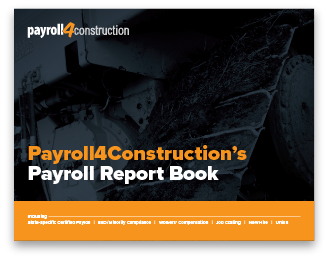Read More


How Payroll4Construction Transforms Construction Payroll
Payroll4Construction is a construction payroll service that is shifting the way contractors manage their payroll requirements. Construction payroll offers unique challenges that can be difficult for contractors to manage internally. Contractors need to have a plan in place to address:...
How Construction Payroll Services Handle Construction Payroll Reporting
Contractors must manage construction payroll reporting because it is a critical element of running a successful construction business. Contractors must track a wide variety of payroll reports depending on the kind of projects they work on and the workers they...
Don’t Be Afraid of Davis-Bacon
Entering the world of government contracts can feel like stepping into unfamiliar territory. With strict compliance requirements, certified payroll reports and the complexities of Davis-Bacon regulations, it’s no wonder many contractors hesitate to pursue public projects. However, the rewards far...
You Have Construction Union Workers, Now What?
Many contractors rely on construction union workers to help them complete projects due to their extensive background in their trades. Oftentimes, union workers have a few years of experience in apprenticeship programs and receive continuous training to improve their productivity...
Exploring Human Capital Management in Construction Payroll
Managing a workforce can be a never-ending parade of challenges, from hiring and onboarding to providing year-end tax documents. Paired with working in multiple states and meeting federal and union wage requirements, it can be tough for administration to maintain...
6 Common Questions About Outsourcing to Construction Payroll Services
Managing complex payroll operations presents unique requirements for construction companies. The challenges become more complicated as businesses grow and take on diverse projects. The complexity of construction payroll often leads contractors to consider outsourcing critical payroll functions. However, this can...
Don’t Be Afraid of Multi-State Work in Construction
When your construction business expands across state lines, it can feel like stepping into uncharted territory. Juggling multiple jurisdictions, varied pay rates and state-specific regulations might seem overwhelming at first. However, the challenges are far outweighed by the benefits. Multi-state...
Construction Payroll Updates and the Construction Payroll Services That Handle Them
The first few months of the new year is always an exciting time for construction businesses because it offers a fresh slate to tackle new cosntruction projects and expand your team. However, as you plan for the rest of 2025,...

